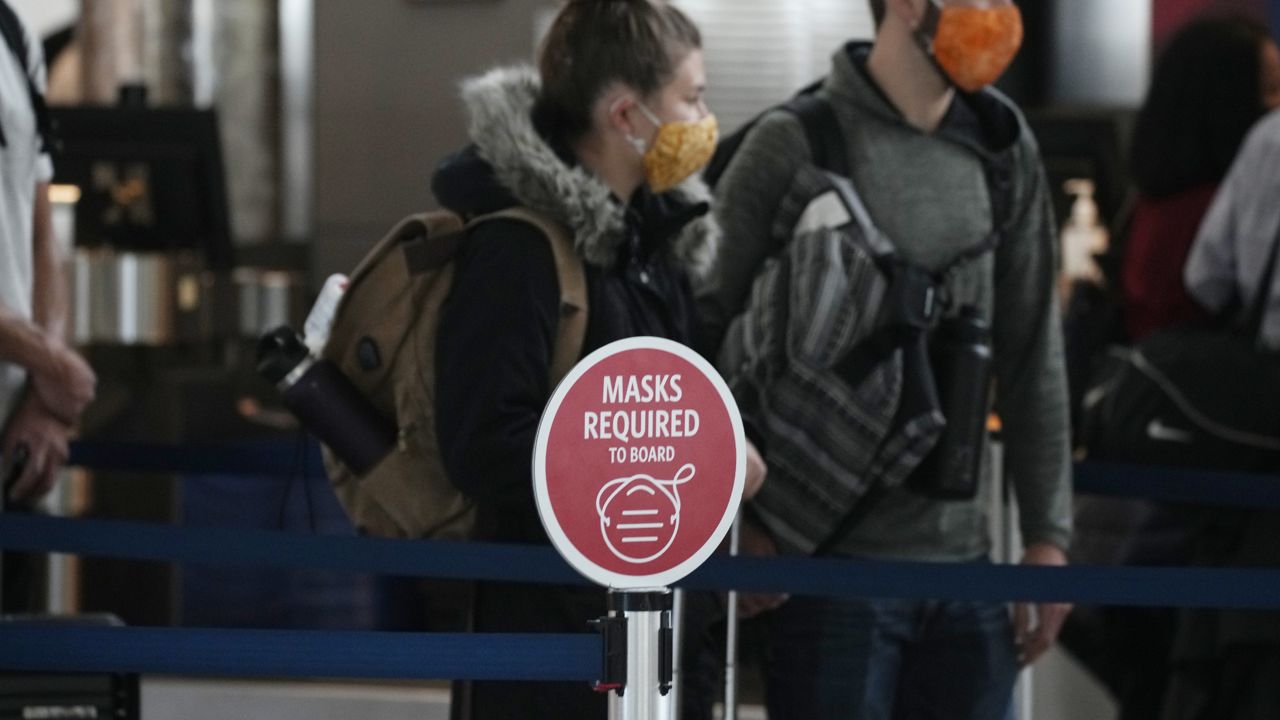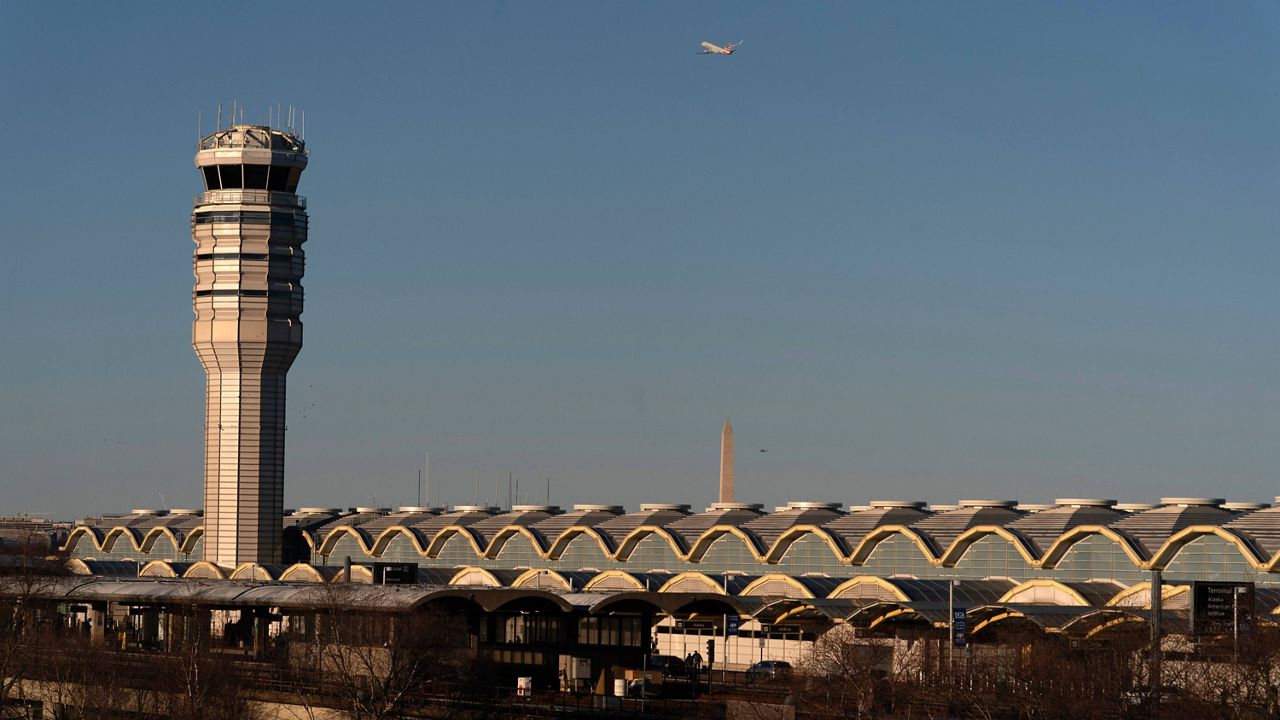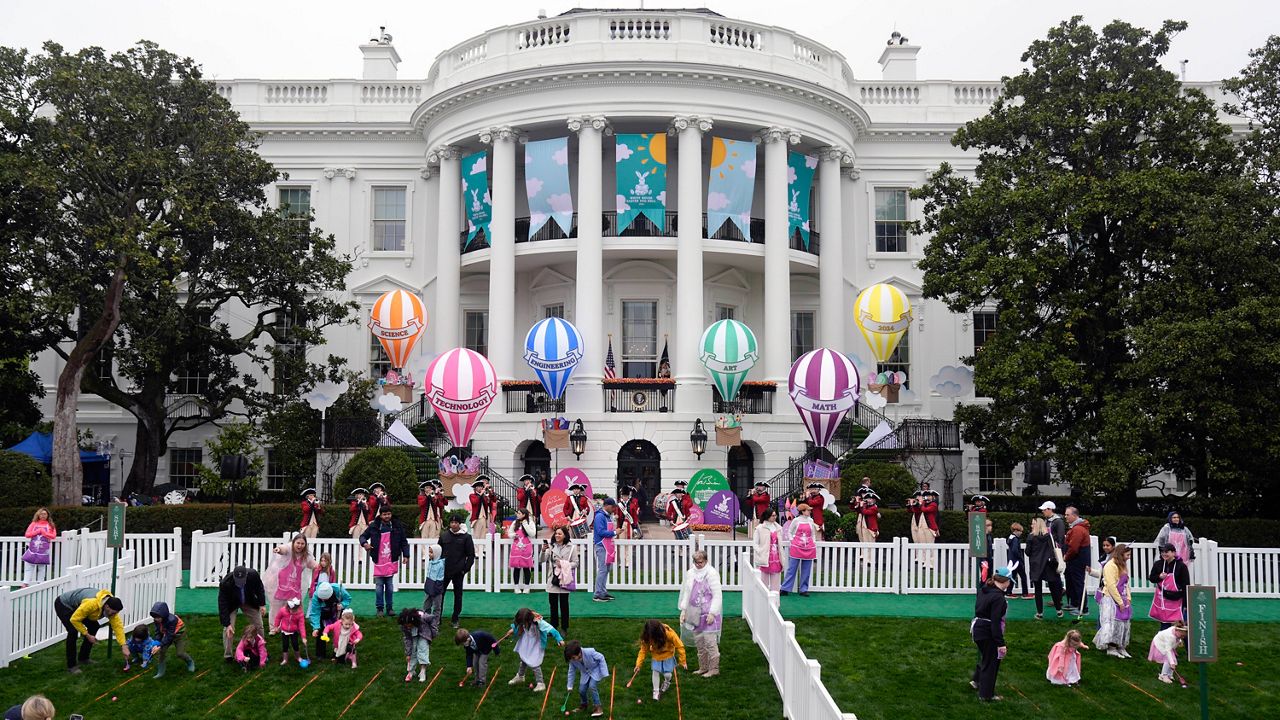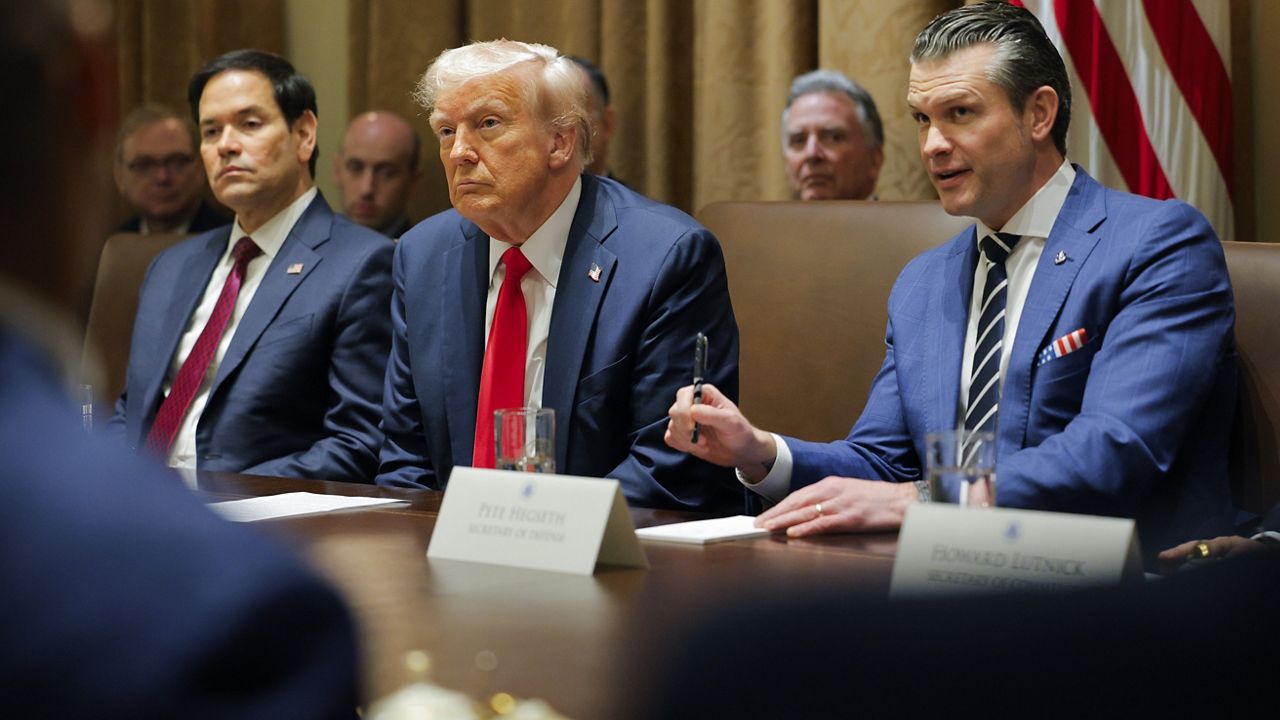This holiday season is shaping up to be much different than the last, as it is largely safe to gather in-person to celebrate — with certain precautions.
Federal health officials have offered a number of tips on how to best mitigate the spread of COVID-19 while traveling or gathering for winter holidays.
It’s a message health officials repeat at nearly every briefing, PSA and public appearance: If you aren’t yet vaccinated against COVID-19, do so as soon as possible.
Over 196 million Americans are fully vaccinated against COVID-19, equal to just under 60% of the U.S. population. But that leaves a large portion of the population unprotected from the virus, as vaccines for children under the age of 5 have yet to be approved.
According to recent data from the U.S. Centers for Disease Control and Prevention, unvaccinated individuals are six times more likely to contract COVID-19 and 14 times more likely to die from the virus compared to vaccinated individuals.
“If you or your family members are not yet vaccinated, please consider the benefits of vaccination,” CDC director Dr. Rochelle Walensky said during a Monday press briefing. “Roll up your sleeves and get protected — or boosted — especially if you will be around those who are at higher risk, or children under the age of five, who are not yet eligible for vaccination.”
Per the CDC, unvaccinated individuals should keep on face coverings even while indoors. In areas of high transmission, all individuals should wear masks when gathering in groups indoors, regardless of vaccination status.
Vaccinated individuals may choose to remain masked if a family member is at high risk of contracting COVID-19, such as immunocompromised individuals.
If you’re already fully vaccinated against the virus, consider getting a booster shot.
The Food and Drug Administration (FDA) on Friday authorized a third shot of Pfizer and Moderna’s COVID-19 vaccines for all adults six months after their last dose; the recommended wait for those who got a single-dose Johnson & Johnson vaccine was already just two months after their first shot.
Individuals can mix-and-match their third booster shot — or second, if they initially received J&J — between any company.
Vaccine protection against infection can wane with time, and White House officials on Monday cited a number of nationwide and international studies supporting the need for a third vaccine.
“Data from Israel, the U.K, Brazil and now the United States show boosters significantly enhanced protection [against COVID-19],” Dr. Anthony Fauci, chief medical advisor to the president, said Monday. “And so protect yourself, your family and your community by getting boosted if you are already vaccinated.”
While the vaccines spur immune memory that protects against severe disease, protection against infection depends on levels of virus-fighting antibodies that wane with time. No one yet knows how long antibody levels will stay high after a booster.
But even a temporary boost in protection against infection may help, especially as people start to gather with family around the winter holidays.
As an added layer of protection, Americans may turn to rapid tests or other methods to determine if they are COVID positive before gathering with family and friends.
“One extra layer of protection that you might take is to take a rapid test before you gather together,” Walensky said Monday, noting that vaccination and social distancing protocols should be the primary mitigation techniques used before testing.
White House officials on Monday said the U.S. has plenty of supply ready for the expected holiday influx of testing requests.
“We have more than enough testing capacity in this country to support current and potentially more than potential testing needs, including testing ahead of the holidays,” White House coronavirus response coordinator Jeff Zients told reporters.
Chains like CVS and Walgreens say they have ample supplies and recently lifted limits on how many can be purchased at one time. The shift comes after test makers ramped up production, spurred by more than $3 billion in new purchasing contracts and assistance from the government.
Home tests are typically more than $10 each and take about 15 minutes.
While health officials say it is safe for fully vaccinated individuals to gather indoors, there have still been breakthrough cases of COVID-19 (which is why booster shots are becoming more important).
If you feel any COVID-like symptoms on the morning of a gathering, you can get tested, but know that depending on the test, results might not be available for another 24 hours. Officials urge Americans to practice the “better safe than sorry” approach and forgo gatherings if they have not gotten a conclusive test result.
Combined with vaccination, home test kits for COVID-19 can add a layer of safety and reassurance by providing on-the-spot results during this second year of pandemic holidays.
Home kits are not as accurate as the PCR tests done in hospitals and at testing sites. But they have the advantage of giving results within minutes instead of days.
If vaccinated individuals start to feel sick after attending a gathering, get tested 5-7 days after your last known exposure to COVID-19.
Unvaccinated individuals should get tested immediately upon learning of close contact with an infected individual, and should retest again 5-7 days after the original exposure.
If you’re traveling by air or ground to another state for the holidays, officials recommend looking into transmission rate and local COVID guidelines to best prepare for your travels.
For example, unvaccinated travelers visiting New York City will not be able to attend Broadway shows or dine at any restaurant within the city limits, as all individuals aged 12 years and older must show proof of vaccination at indoor venues. Penalties for noncompliance start at $1,000.
There is no such requirement for travelers to, say, Miami, as Florida state banned businesses from inquiring about a customer’s vaccination status.
Most city governments also recommend getting tested before and after public travel.
The federal mask mandate is still in place, meaning all individuals must wear masks, regardless of vaccination status, while on public transit.
Travelers going outside of the United States will need to get tested before boarding their flight to return stateside, and unvaccinated individuals are discouraged from traveling abroad altogether.
The Associated Press contributed to this report.








